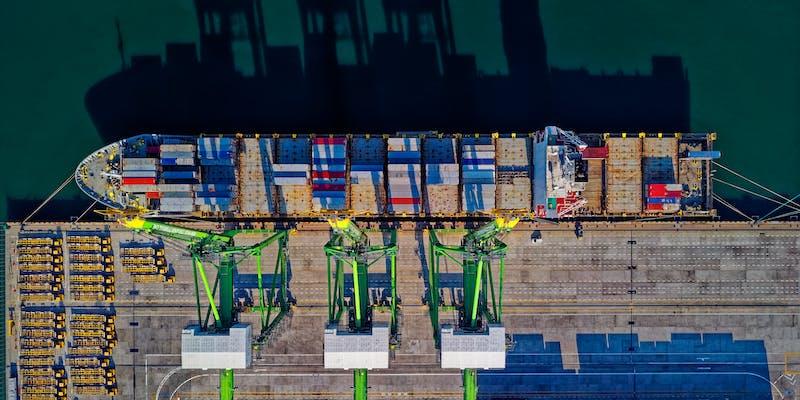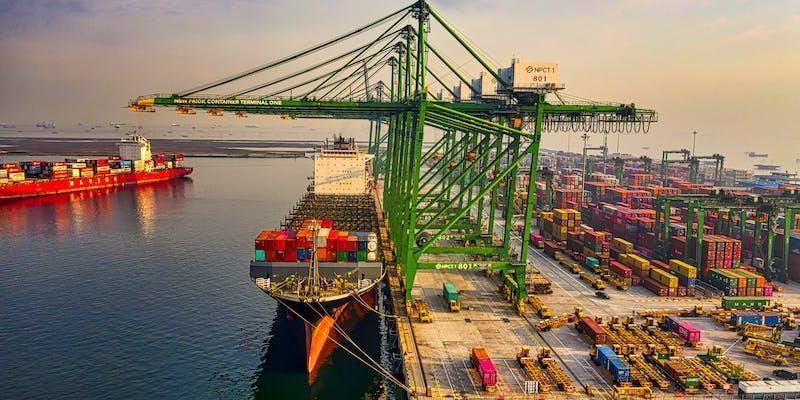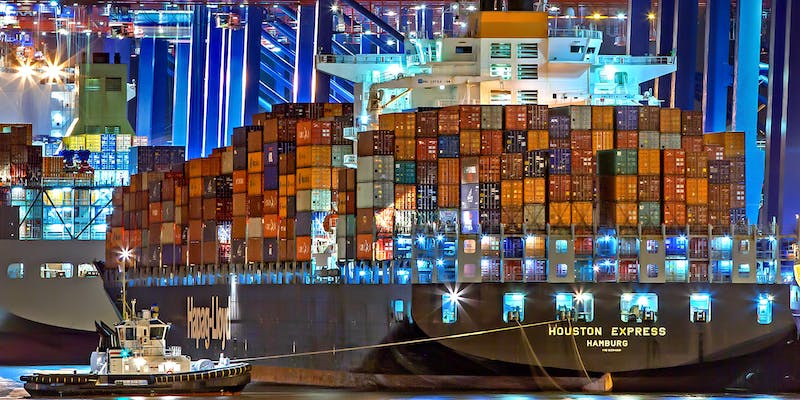Trade Barriers Types Implemented in the US and How You Can Handle Them
Dec 15, 2023 By Triston Martin
Tariffs are duties on imported goods. Tariffs are an essential trade measure that raises consumer prices for imported goods. The country's customs authority usually receives these tariffs. Customs and Border Protection collects tariffs for the Department of Commerce in the US. HMRC handles this in the UK.
The Purpose Of Trade Barriers And Tariffs

Protecting National Security through Industry Support
Developed countries often use trade barriers to safeguard industries critical to their national security. The defense sector is particularly protected because of its significance to a country's strategic interests.
For instance, despite their industrial advancements, the United States and Western Europe maintain strict control over their defense-related businesses. These trade restrictions ensure that these essential industries remain competitive and secure, reflecting their crucial role in maintaining national sovereignty.
Retaliation as a Trade Strategy
Trade restrictions can also serve as a tool for retaliation in international trade. Countries might impose tariffs in response to perceived unfair practices by their trading partners. A classic example is when France, to safeguard its unique products, might impose a tariff on U.S. meat imports if it believes the U.S. incorrectly labels its domestically produced sparkling wines as "Champagne," a name reserved for wines from the Champagne region in France.
Such trade barriers are often a temporary measure to prompt the offending nation to correct its actions. In our example, if the U.S. addresses the issue of mislabeling, France would likely remove the tariff.
Protecting Jobs in Local Industries
Tariffs, often subject to political debate, are tools used to shield local industries from foreign competition that could lead to job losses. Local companies may cut staff or move production abroad to save money when imports are cheaper. This can increase unemployment and discontent.
Tariffs protect domestic industries, but studies show they slow economic growth, hurting everyone. Domestic industries often complain about foreign labor's lower costs due to substandard working conditions and minimal regulation. This allows overseas companies to produce cheaper. Countries produce goods as long as they have an economic advantage.
Ensuring Consumer Safety
To safeguard its citizens, a government might impose a tariff on imports perceived as hazardous. For instance, South Korea could introduce a tariff on American beef imports if there's a risk of disease contamination.
This strategy relies on trade barriers like tariffs. Trade restrictions manage economic relations and protect public health. Governments limit trade in harmful products to reduce health risks. This emphasizes the need to balance international trade and domestic welfare.
Types of Trade Barriers

Tariff Barriers
Specific Tariffs
Specific tariffs are predetermined fees on each imported item. The tariff rate varies by imported product. One country could charge $15 for imported shoes and $300 for imported computers. Trade barriers like tariffs raise the cost of importing certain goods, affecting global trade.
Valorem Tariffs
To calculate ad valorem tariffs, multiply the imported goods' value by a percentage. Latin "ad valorem" means "according to value." Japan could charge a 15% ad valorem tariff on US-imported cars. Thus, the tariff has raised the price of a $10,000 car to $11,500 in Japan. Trade barriers like this tariff protect domestic industries by raising consumer prices for foreign goods.
Non-tariff Barriers
Licenses
Licenses are permits issued by a government that allows businesses to import specific goods. For example, if a country restricts cheese import, only licensed companies can import it. This trade barrier limits competition and can lead to higher consumer prices, as it restricts trade in certain goods.
Voluntary Export Restraints (VER)
A VER is an agreement by an exporting country to limit the quantity of goods exported to another country. It is a form of trade barrier that arises from negotiations between countries. For instance, Brazil might agree to limit sugar exports to Canada, and in return, Canada might restrict its coal exports to Brazil. This can increase prices and is a form of restricting trade to protect domestic industries.
Local Content Requirements
This type of trade restriction mandates that a certain percentage of a good, or its value, must be produced domestically. For example, a country might require that 25% of the components of an imported computer be made domestically or that 15% of its value come from domestic parts. This policy aims to support local industries by ensuring a market for household goods, acting as a significant barrier to free trade.
Import Quotas
An import quota limits the quantity of a particular good that can be imported. This type of trade restriction often goes hand in hand with the issuance of licenses. For example, a country might limit the amount of imported citrus fruit, controlling the market supply and affecting restricting trade dynamics.
Who Utilizes Tariffs For Benefits?
Governments benefit by collecting increased revenues as imported goods become pricier. Domestic industries also gain an advantage, as they face less competition due to the elevated prices of imports. However, this situation hurts consumers and businesses. The US no longer taxes EU steel and aluminum imports. Tariffs and trade restrictions affect businesses, consumers, and governments differently over time.
Early on, high product prices can reduce consumer and business consumption. This may benefit some companies and boost government duty revenue. However, long-term effects may be adverse. Reduced competition can lower business efficiency, resulting in lower profits when alternative products become available. Due to rising prices, especially for food, which reduces disposable income, governments may face long-term consequences from increased demand for public services.
Importance of Tariff in Modern Trade
Tariffs have lost importance in global restricting trade. This decrease is partly due to international trade institutions like the WTO promoting unrestricted trade. These organizations reduce retaliatory taxes by preventing countries from imposing import tariffs and taxes. Thus, nations have prioritized non-tariff trade restrictions like quotas and export controls.
The WTO seeks to reduce tariff-induced production-consumption imbalances. Domestic producers increase production in response to artificially inflated prices, while consumers cut back on purchases. Since the 1930s, developed nations have reduced tariffs and other trade barriers. This change has aided globalization and integration. International treaties often reduce tariffs, reducing market volatility.

Why You Should Pay Off Your Credit Card Early

Trade Barriers Types Implemented in the US and How You Can Handle Them

Unlocking the Benefits of Life Insurance: 3 Key Reasons to Consider

10 Cheap and Fun Activities To Do During the Holidays

Listing Your Home on Airbnb

What Kind of Loans Do Great Lakes Student Loans Offer?

How Instagram Makes Money

Is Paying Off a Personal Loan Early Right for You?

Exploring Automated Clearing House: Operations and Mechanics

